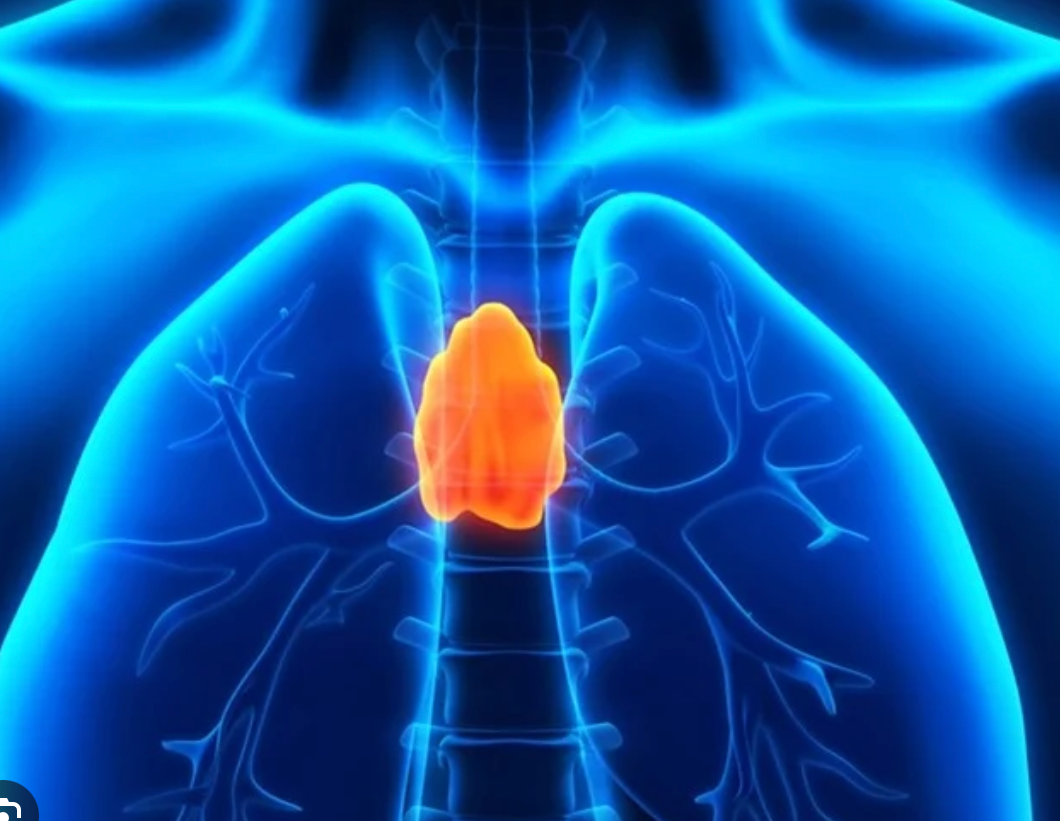Introduction
When considering surgical options, many patients weigh the benefits of private thoracic surgery against the potential costs involved. Thoracic surgery, which focuses on the organs and structures within the chest, can range from routine procedures to complex operations requiring specialized expertise. While private healthcare might offer advantages like shorter waiting times and personalized care, the financial implications can be daunting. This article delves into the true private thoracic surgery cost, breaking down expected expenses, exploring hidden costs, and offering tips to manage financial obligations effectively.
Understanding Thoracic Surgery
What is Thoracic Surgery?
Thoracic surgery is a specialized field of medicine that deals with surgical procedures related to the chest cavity. This includes surgeries on the lungs, heart, esophagus, and other structures within the thoracic region. Unlike other surgical fields, thoracic surgery often requires a high level of precision and expertise due to the complexity of the organs involved. As such, patients seeking thoracic surgery are encouraged to consult with qualified thoracic surgeons who have extensive training and experience in this area.
Common Types of Thoracic Surgeries
There are various types of thoracic surgeries that are performed based on individual patient needs. Some common procedures include:
- Lung Resection: Removing a portion of the lung affected by diseases such as cancer or infections.
- Thoracotomy: An incision into the chest wall to access the organs within.
- Video-Assisted Thoracoscopic Surgery (VATS): A minimally invasive procedure that uses small incisions and cameras to perform surgery.
- Esophagectomy: Removal of all or part of the esophagus.
- Cardiac Surgery: Involves a range of procedures focused on the heart, including valve replacements and coronary artery bypass surgeries.
Understanding the specific type of thoracic surgery needed is crucial, as each procedure comes with its own set of risks, recovery times, and costs.
Why Choose Private Thoracic Surgery?
There are several reasons why patients might opt for private thoracic surgery over public healthcare options. One of the primary benefits includes reduced waiting times, which can be critical for patients requiring urgent care. Additionally, private facilities often provide a more personalized experience, including private rooms and one-on-one nursing care.
Furthermore, the choice of surgeon and facility can be more flexible in private healthcare, allowing patients to select practitioners based on reputation and specialization. This autonomy can lead to greater peace of mind during a potentially stressful medical journey.
Moreover patients are always seen by the same specialist doctor at a time that suits them.
The Breakdown of Thoracic Surgery Costs
Initial Consultation Fees
The first step in the journey of thoracic surgery typically involves an initial consultation with a thoracic surgeon. Consultation fees vary widely but can range from £250 to £350 or occasionally more, depending on the specialist’s experience and the complexity of the case. During this meeting, the surgeon will assess the patient’s condition, discuss potential surgical options, and outline a preliminary plan.
Many private practices may require payment upfront for these consultations, so it’s important for patients to be prepared financially before scheduling their appointments.
Pre-operative Assessments
Before undergoing surgery, patients will often need to complete a series of pre-operative assessments. These tests may include blood work, imaging studies, and consultations with additional specialists (like cardiologists or pulmonologists). The costs associated with these assessments are usually included in the hospital fee.
Patients should inquire about the specific assessments needed for their procedures and their associated costs during the initial consultation to avoid any surprises later on.
Surgical Procedure Costs
The surgical procedure is typically the most significant portion of the overall cost. Depending on the complexity of the surgery, the costs can range from £7-10.000 for simpler procedures to over £ 30.000 for very complex operations. Factors influencing these costs include the type of procedure, the facility’s fees, the surgeon’s experience, and any additional support staff involved in the operation.
Most private healthcare facilities provide a comprehensive quote that outlines the costs associated with the surgical procedure, allowing patients to gauge the financial commitment involved.
Hospital Stay and Accommodation
After surgery, the length of the hospital stay can vary significantly based on the procedure performed and the patient’s recovery progress. Patients should budget for the daily costs associated with their hospital stay, which can range from £1.500 to £4,000 per day in private facilities. This may include room fees, nursing care, and meals. The higher cost is for intensive care units or high-dependency units, ward stays is usually cheaper.
If the surgery requires extended recovery, patients might also need to consider accommodation for family members, which adds to the financial burden. It’s important to evaluate both the duration of the hospital stay and any additional accommodations needed when planning financially. Usually it is possible to have relative accommodation and meals in the same hospital room as the patient for a small fee.
Post-operative Care and Follow-ups
Post-operative care is an essential aspect of recovery that can incur additional costs. This care often includes follow-up appointments with the surgeon, physical therapy, and any required medications. Follow-up appointments can range from £150 to £500 each, depending on the complexity of the case and any additional evaluations needed. Sometime surgical fees include unlimited follow-up appointments. This might be a good solution for you and your surgeon as all is included and you can choose to be seen as many times as needed.
Patients should also account for occasional ongoing rehab or physiotherapy, especially for major thoracic surgeries that may require extensive recovery efforts. These costs can accumulate over weeks or months, necessitating careful planning and budgeting. Usually private physiotherapy is not needed with modern enhanced recovery techniques.
Hidden Expenses to Consider
Medication and Pain Management
After surgery, patients will require medication, including pain relievers and antibiotics, to ensure proper recovery. The costs of these medications can be considerable, with some patients spending upwards of £200 during the recovery phase, depending on the drugs prescribed.
It’s also advisable for patients to check if any medications will be covered by their insurance plans, as this can significantly decrease out-of-pocket expenses.
Specialist Consultations
During the recovery process, patients may need to consult with various specialists, including cardiologists, nutritionists, or respiratory therapists. These consultations can be additional expenses that patients may not initially anticipate. Fees for specialists can vary, but appointments typically range from £150 to £300 each.
Patients are encouraged to discuss potential referrals during their initial consultations, allowing them to prepare for any additional costs associated with post-operative care.
Travel and Accommodation for Family Members
For patients undergoing private thoracic surgery, family support can be invaluable. However, family members may incur travel and accommodation costs to be present during the surgery and recovery. These expenses can vary widely based on distance, duration of stay, and choice of accommodations, ranging from budget hotels to more luxurious options.
Patients should plan accordingly to ensure their loved ones can be there without adding excessive financial stress to the situation. This may involve budgeting for transportation, meals, and lodging over several days or weeks.
Insurance and Financing Options
Understanding Your Insurance Coverage
Before undergoing private thoracic surgery, it is crucial for patients to have a comprehensive understanding of their insurance coverage. Many private insurance plans may cover some or all of the costs associated with surgical procedures, but coverage specifics can vary significantly.
Patients should contact their insurance providers to clarify which aspects of their surgery, including consultations, hospital stays, and post-operative care, will be covered, and what they will need to pay out of pocket. This awareness can help mitigate unexpected expenses and facilitate better planning. It is important to consider that some plans exclude central London Hospitals unless a premium has been paid.
Payment Plans and Financing Solutions
For those facing high out-of-pocket costs, many private healthcare facilities and surgeons offer financing solutions. These may include payment plans that allow patients to spread their costs over time, making it manageable to pay for surgery without incurring substantial debt.
Some facilities may also partner with financial institutions to offer loans for medical expenses. Patients should research and consider all available options, comparing interest rates and terms to find the most suitable solution for their financial situation.
Tips for Managing Costs
How to Prepare Financially
Financial preparation is crucial when considering private thoracic surgery. Patients should start by creating a comprehensive budget that outlines all expected costs, including surgical fees, assessments, hospital stays, and post-operative care. This budget should factor in potential hidden expenses as well.
Additionally, patients may benefit from setting aside an emergency fund to cover any unforeseen costs during the surgical journey. Understanding and preparing for the financial implications can lead to a smoother experience overall.
Questions to Ask Your Surgeon
Before undergoing surgery, patients should feel empowered to ask their surgeon detailed questions about the procedure and associated costs. Key questions might include:
- What are the total estimated costs, including surgery, assessments, and follow-ups?
- Are there any potential additional costs I should be aware of?
- What payment options are available?
- Can you recommend any financial assistance programs?
Getting clear answers to these questions can help in planning and minimizing financial stress during recovery.
Resources for Financial Assistance
Various resources are available for patients seeking financial assistance for private thoracic surgery. Non-profit organizations, medical foundations, and even local charities may offer grants or financial aid to qualified patients. Additionally, crowdfunding platforms can provide an avenue for patients to raise funds for their medical expenses.
Patients should reach out to their healthcare providers for information on potential resources and assistance programs that may be available to them.
Conclusion
Understanding the true cost of private thoracic surgery involves more than just the surgical fee itself. From initial consultations to hidden expenses like medications and rehabilitation, patients must prepare for a comprehensive financial commitment. By breaking down each cost associated with the process, exploring insurance and financing options, and proactively managing expenses, patients can navigate their surgical journey more effectively.
Ultimately, being informed and prepared is key to ensuring a smoother experience, allowing patients to focus on recovery rather than financial concerns.
FAQs
What factors influence the overall cost of private thoracic surgery?
The overall cost can be influenced by the type of surgery, the surgeon’s experience, the facility’s fees, necessary pre-operative assessments, and post-operative care needs.
Are there financing options available for private thoracic surgery?
Yes, many private facilities offer financing plans or loans to help manage the costs of surgery. Patients should inquire about these options during consultation.
Will my insurance cover the cost of private thoracic surgery?
Insurance coverage varies by plan. Patients should reach out to their insurance provider to clarify coverage details related to surgery, assessments, and follow-ups.
How can I prepare financially for private thoracic surgery?
Creating a detailed budget, setting aside an emergency fund, and inquiring about potential financial assistance resources can help prepare financially for surgery.
What should I ask my surgeon before the procedure?
Patients should ask about total costs, potential hidden expenses, payment options, and recommendations for financial assistance programs to ensure they are adequately prepared.









